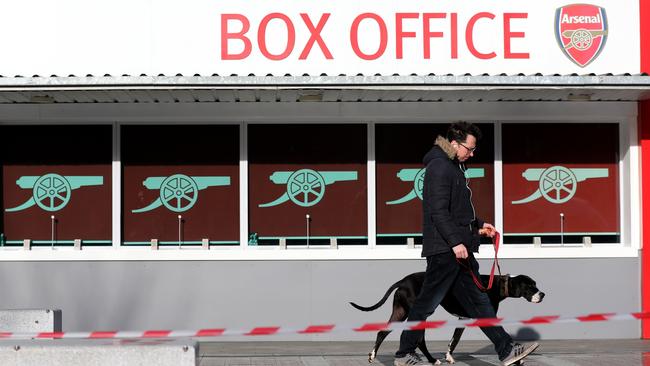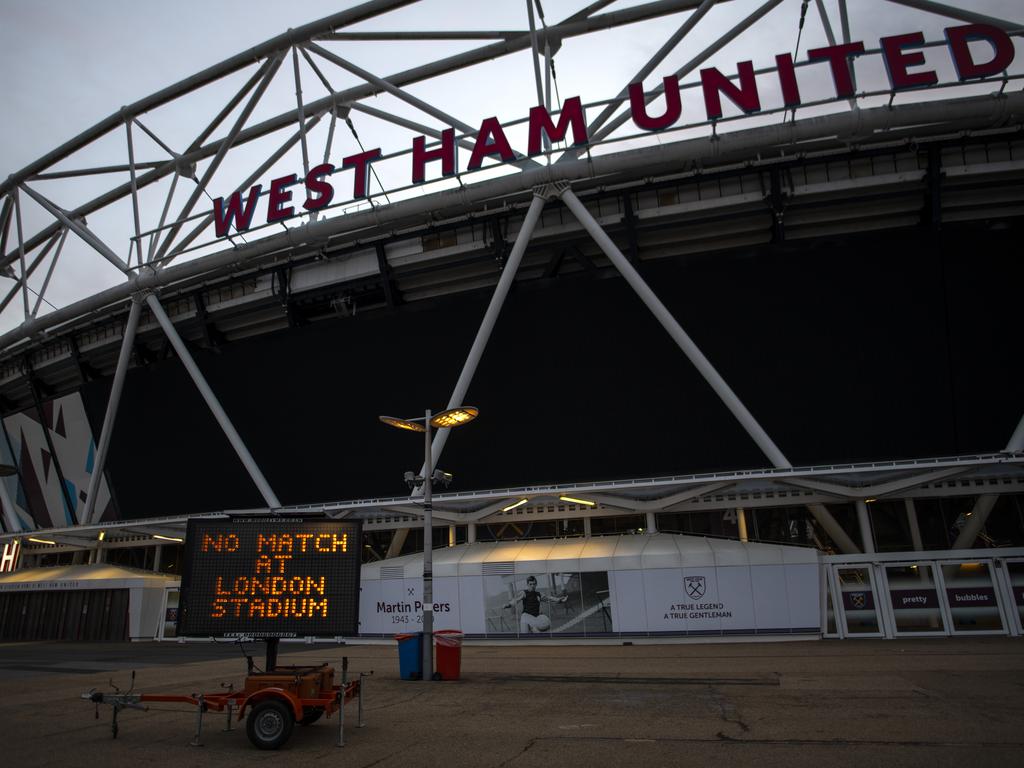English Premier League clubs ramp up plans to restart in June
More than six weeks have passed since a positive coronavirus test for Mikel Arteta on March 12 brought English football to a halt.

More than six weeks have passed since a positive coronavirus test for Mikel Arteta, the Arsenal manager, brought English football to a halt but the signs, increasingly, are that it is on the way back.
In the past few days there has been a shift in the stance of the government, with ministers and staff recognising the need for some positivity during this lockdown. In addition, the English Premier League has devised Project Restart, a plan for the season to resume on June 8 behind closed doors at “approved stadiums”, which it unveiled to its clubs at a meeting 10 days ago.
However, soccer will not restart without government approval — and only when COVID-19 tests are readily available — and yet increased engagement between government officials and key figures across all the main professional sports is seen as significant.
A cross-sports working group that is chaired by the England and Wales Cricket Board and involves senior officials from football, rugby union, horse racing and cricket has already been examining proposals for overcoming the challenges of the pandemic based on holding events behind closed doors.
Sources have said there would be a “ramping up” this week, with English Premier League clubs returning to their training grounds — while adhering to strict social-distancing guidelines — and meetings planned between government medical experts and the medical officers for each sport. The first of those meetings, hosted by Public Health England and the chief medical officer’s office, will be held in the next few days.
At the same time, training grounds will reopen, after dialogue between the clubs and the Premier League and then league officials and the government. If social-distancing rules are obeyed, the government has said it would be possible to use the club facilities in recognition that players were severely limited in the training they could do at home.
If the Premier League season resumes on June 8, as planned, 13 weeks would have passed since the most recent top-flight game, between Leicester City and Aston Villa at the King Power Stadium on March 9. That would highlight the need to step up training regimens in preparation for a full return. Even then, clubs have said their players would need at least three weeks of full-contact training before participating in a competitive match.
Quite how competitive matches look is a matter of discussion.
Games will only take place in “approved stadiums” that meet the standards required to limit the spread of COVID-19 and demands on public services such as policing.
In all likelihood, that means not all 20 EPL grounds would be used but a conversation with the clubs, and the subject of whether the stadiums needed to be neutral, will continue at the next shareholders’ meeting on Friday, with a decision reached based on guidance from the government, the police and the Scientific Advisory Group for Emergencies.
Within the Project Restart plan, there is a competition schedule document that outlines the need for three weeks of training, a window between June 8 and July 27 for the remaining matches of the 2019-20 season and a date of August 22 for the start of next season. Crucial to that happening is a match-day environment that limits the risk to all those who attend these behind-closed-doors events.
The “return to play” protocol is detailed but, insiders say, still depends on the availability of tests. At present, the Premier League has not made any commitment beyond stating the need for screening and testing protocols on arrival at every game.
Checks will also have to take place before teams and officials leave for the stadium, with sterile environments created for travelling and a “sterile route” to the dressing room. There would need to be an entire behind-closed-doors protocol, to limit contact beyond unavoidable encounters during matches.
Another sensitive topic is the broadcasting of matches. There might be a desire, even expressed by government officials, to televise some matches for free but that is a hugely sensitive subject, given the sums paid by the official broadcast partners for exclusive content. At the moment, 47 of the remaining 92 Premier League games will be televised. What happens with the other 45 is still being debated.
The league also plans talks with broadcasters about how they could mitigate the negative impact of there being no fans at matches, especially given that the league markets itself around the world as inspiring an especially passionate atmosphere. Brighton & Hove Albion have considered playing recorded crowd noise at the stadium.
There is fresh impetus to bring sport back, with the government now taking the view that the mental health of the nation would probably benefit.
Social-distancing measures are sure to remain, but the return of Premier League football would represent a big step towards normality, even if normality is being redefined by this global pandemic.
THE TIMES






To join the conversation, please log in. Don't have an account? Register
Join the conversation, you are commenting as Logout